Life
Sign up for our newsletter
We summarize the week's scientific breakthroughs every Thursday.
-
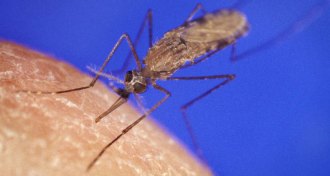 Genetics
GeneticsIn lab tests, this gene drive wiped out a population of mosquitoes
For the first time, a gene drive caused a population crash of mosquitoes in a small-scale test.
-
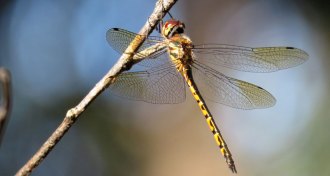 Animals
AnimalsHow math helps explain the delicate patterns of dragonfly wings
Scientists have found a mathematical explanation for the complex patterns on the wings of dragonflies and other insects.
-
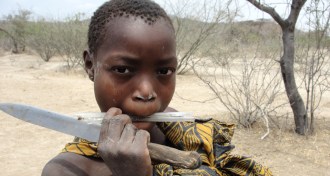 Anthropology
AnthropologyThe way hunter-gatherers share food shows how cooperation evolved
Camp customs override selfishness and generosity when foragers divvy up food, a study of East Africa’s Hazda hunter-gatherers shows.
By Bruce Bower -
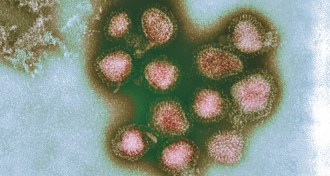 Health & Medicine
Health & Medicine50 years ago, a flu pandemic spurred vaccine research
A half-century after the Hong Kong flu pandemic, scientists are getting closer to a universal vaccine.
-
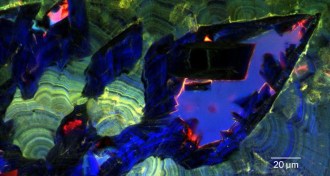 Health & Medicine
Health & MedicineKidney stones grow and dissolve much like geological crystals
Kidney stones are dynamic entities that grow and dissolve, a new study finds, which contradicts the prevailing medical assumption.
-
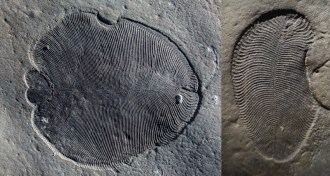 Paleontology
PaleontologyCholesterol traces suggest these mysterious fossils were animals, not fungi
Traces of cholesterol still clinging to a group of enigmatic Ediacaran fossils suggests the weird critters were animals, not fungi or lichen.
-
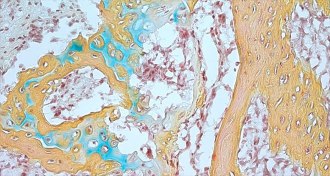 Life
LifeHumans have skeletal stem cells that help bones and cartilage grow
Human skeletal stem cells have been found for the first time.
-
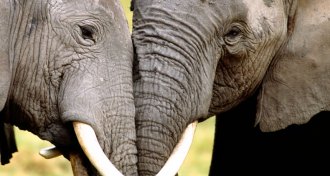 Life
LifeDNA from seized elephant ivory unmasks 3 big trafficking cartels in Africa
Scientists can sleuth out wildlife crime and aid law enforcement by tracing elephant DNA from ivory seizures back to the source.
-
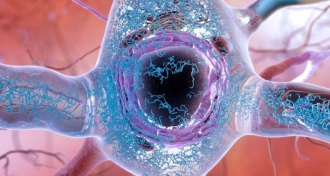 Neuroscience
NeuroscienceOver-the-hill cells may cause trouble in the aging brain
Killing dormant cells in the brains of mice staved off memory trouble.
-
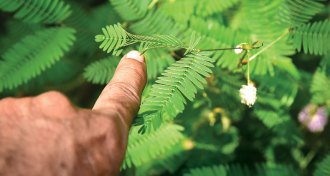 Plants
PlantsSmart plants can teach us a thing or two
‘The Revolutionary Genius of Plants’ challenges the brain-centered view of intelligence.
-
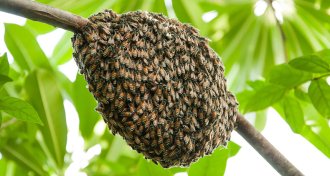 Life
LifeHere’s how clumps of honeybees may survive blowing in the wind
Honeybees clumped on trees may adjust their positions to keep the cluster together when it’s jostled by wind, a new study suggests.
-
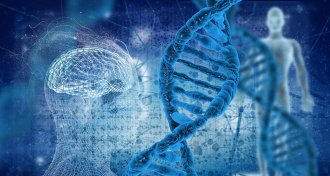 Genetics
GeneticsA recount of human genes ups the number to at least 46,831
A new estimate of the number of human genes adds in some RNA-producing genes.